The Vital Balance: Navigating Well-being in Modern Veterinary Practice
The veterinary profession in the United Kingdom stands at a critical crossroads, where the increasing demands of animal care intersect with the essential need for professional well-being. Recent studies from the Royal College of Veterinary Surgeons (RCVS) indicate that nearly 90% of veterinary professionals experience work-related stress, highlighting the urgent need to address work-life balance in this demanding field. As the UK continues to attract international veterinary talent through strategic recruitment and progressive hiring trends, understanding and implementing effective work-life balance strategies has become paramount for sustaining a healthy, long-term career in veterinary medicine.
The landscape of veterinary practice has evolved significantly, with technological advancements and changing client expectations creating both opportunities and challenges. Modern talent acquisition strategies in the UK veterinary sector increasingly emphasise well-being programmes and flexible working arrangements, recognising that sustainable practice requires more than just clinical excellence. This comprehensive exploration delves into practical approaches, expert insights, and evidence-based strategies for achieving a healthier work-life balance in veterinary medicine.
Structural Foundations of Work-Life Balance
The cornerstone of maintaining equilibrium in veterinary practice lies in establishing robust structural supports within both professional and personal spheres. Progressive veterinary practices across the UK are revolutionising traditional working patterns by implementing flexible scheduling systems, which has shown to reduce burnout by up to 45% according to recent industry studies. These innovations in practice management directly address the historical challenges of long hours and unpredictable emergency calls that have long plagued the profession.
Leading veterinary employers are now incorporating sophisticated rota management systems that ensure fair distribution of on-call duties and adequate rest periods. For instance, the introduction of dedicated night teams and structured shift patterns has transformed how practices approach work allocation. The RCVS’s latest guidelines on working hours and rest periods have further standardised these practices, creating a framework that supports both individual well-being and practice efficiency.
Practices that have adopted these structural changes report significant improvements in staff retention and job satisfaction. For example, a large veterinary group in Manchester implemented a four-day working week pilot programme, resulting in a 30% reduction in stress-related absence and a 25% increase in productivity among participating veterinarians.
Personal Strategies for Professional Sustainability
Developing effective personal strategies forms the second pillar of maintaining work-life balance in veterinary medicine. The focus here extends beyond mere time management to encompass comprehensive lifestyle design that supports long-term career sustainability. Successful veterinary professionals increasingly recognise the importance of establishing clear boundaries between work and personal life, implementing specific techniques to maintain these distinctions.
Mental health awareness and self-care practices have become integral components of professional development in UK veterinary medicine. The British Veterinary Association (BVA) reports that practices incorporating regular wellness check-ins and providing access to mental health resources see a 40% reduction in staff turnover rates. These findings underscore the importance of proactive approaches to personal well-being in maintaining career longevity.
Practical applications include developing robust support networks, engaging in regular physical activity, and utilising professional counselling services specifically tailored to veterinary professionals. The Veterinary Defence Society now offers comprehensive well-being support programmes, recognising that emotional resilience is as crucial as clinical competence in modern practice.
Organisational Culture and Support Systems
The transformation of workplace culture represents a fundamental shift in how veterinary practices approach work-life balance. Forward-thinking practices are moving away from the traditional martyr culture that often characterised veterinary medicine, embracing instead a more sustainable and supportive environment. This cultural evolution is reflected in modern talent acquisition strategies, where practices explicitly highlight their commitment to staff well-being as a key recruiting tool.
Recent surveys indicate that practices with strong supportive cultures experience 60% higher engagement levels and 50% lower burnout rates. These organisations typically feature structured mentoring programmes, regular team building activities, and clear career development pathways. The implementation of these support systems has proven particularly beneficial for international veterinary professionals relocating to the UK, providing crucial stability during their transition.
Successful practices often incorporate regular feedback mechanisms, ensuring that well-being initiatives remain relevant and effective. This approach has led to innovative solutions such as job-sharing arrangements, sabbatical programmes, and flexible specialisation paths that allow veterinarians to develop their careers while maintaining personal commitments.
Looking Ahead: The Future of Veterinary Well-being
The future of veterinary practice in the UK holds promising developments for work-life balance, driven by technological innovation and evolving professional standards. Telemedicine and digital practice management tools are reducing administrative burdens, while artificial intelligence applications are streamlining diagnostic processes, creating more space for meaningful client interactions and personal time.
Practice owners and industry leaders are increasingly recognising that investing in staff well-being directly correlates with improved clinical outcomes and practice profitability. The next generation of veterinary professionals can expect to see continued evolution in working patterns, with greater emphasis on flexibility and personal development opportunities. This shift is reflected in current hiring trends, where practices are actively promoting their well-being initiatives as key differentiators in talent acquisition.
For veterinary professionals considering relocation to the UK, the country’s progressive approach to work-life balance presents an attractive proposition. The combination of structured support systems, innovative working patterns, and comprehensive well-being programmes positions the UK as a leading destination for international veterinary talent. As the profession continues to evolve, the focus on maintaining healthy work-life balance will remain central to ensuring sustainable, fulfilling careers in veterinary medicine.
Looking forward, successful implementation of work-life balance strategies will require ongoing collaboration between professional bodies, practice owners, and individual veterinarians. The emphasis on well-being in veterinary medicine is not merely a trend but a fundamental shift in how the profession approaches sustainable practice, ensuring that veterinary careers remain rewarding and sustainable for generations to come.
Pioneering practices across the UK have implemented innovative well-being monitoring systems, utilising digital platforms to track key indicators of staff stress and satisfaction. These solutions enable practice managers to identify potential burnout risks before they become critical issues. Data from a 2023 pilot programme involving 15 practices showed that practices using these monitoring tools experienced a 35% reduction in sick leave and a 28% improvement in staff retention rates over 12 months. The systems typically incorporate anonymous feedback channels, workload tracking, and automated scheduling alerts that flag when individuals are approaching excessive working hours or insufficient rest periods between shifts.








